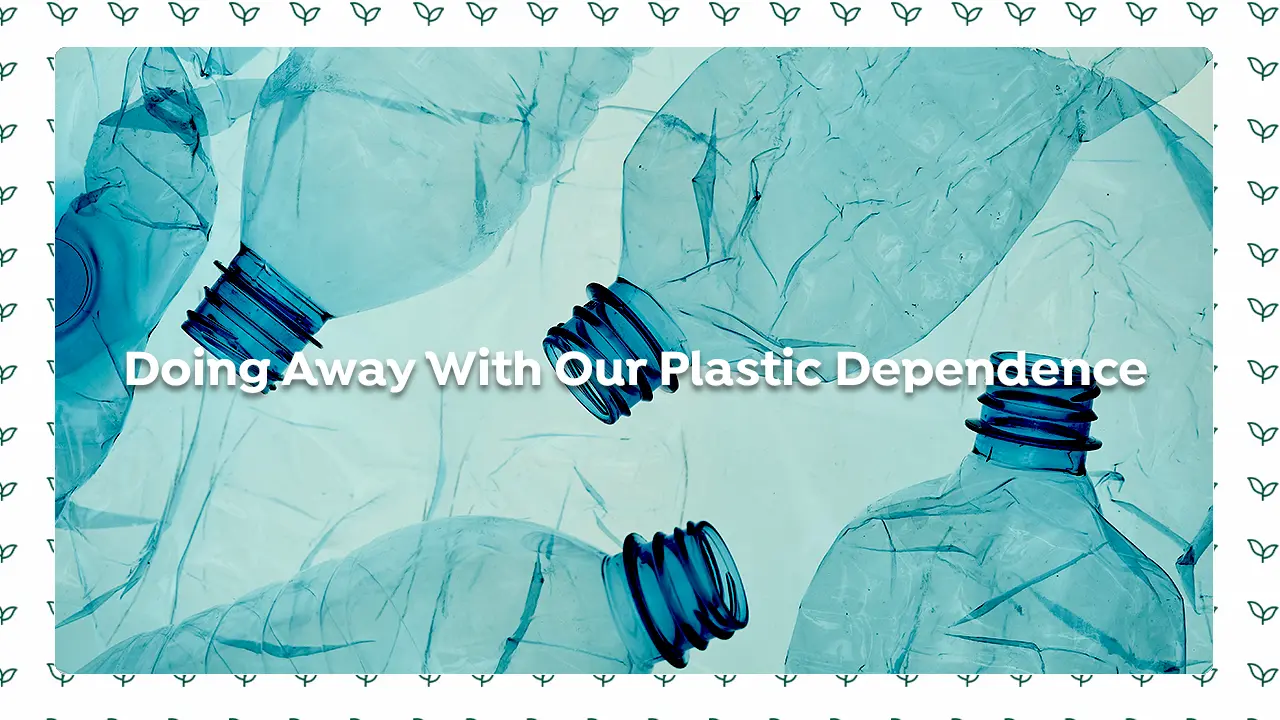It’s a sunny afternoon, and I’m sitting at a restaurant with a group of my (meat-eating) friends. As I peruse the menu looking for vegan options, my friends roll their eyes, their carnivorous instincts yearning for a juicy steak or sizzling bacon. The waiter arrives, and one of my friends, with a mischievous grin, leans over and asks, “Are you sure there’s enough grass on this menu for you?” We all burst out laughing.

For someone new to veganism and trying to transition to a plant-based diet, moments like this can be when you throw in the towel — out with your friends and everyone is ordering something meat-based, and there’s you, the weirdo who’s vegan. This is when you remember that your decision to adopt a vegan lifestyle is driven by your values, compassion for animals, and a desire to make a positive impact on the environment.
So, how can someone who is new to veganism switch to a plant-based diet completely without losing their minds? Well, I have this formula called: ITDAT — Introduction, Trying Out, Detachment, Acceptance & Transition.
Let’s break down each step:
- Introduction: Begin by familiarizing yourself with the principles and benefits of veganism. Educate yourself about the ethical, environmental, and health reasons behind choosing a plant-based lifestyle. This stage is crucial for building a strong foundation and understanding the motivations behind your decision.
- Trying Out: Start incorporating vegan meals and products into your diet gradually. Experiment with new recipes, explore plant-based alternatives for your favorite dishes, and discover a variety of fruits, vegetables, grains, legumes, and plant-based proteins. This stage allows you to explore and adjust to the flavors and textures of vegan food.
- Detachment: As you begin to incorporate more vegan options into your diet, gradually reduce your consumption of animal-based products. This step involves consciously making choices to decrease your reliance on animal products, such as cutting down on meat, dairy, eggs, and other animal-derived ingredients. Find vegan alternatives that you enjoy and incorporate them into your daily meals.
- Acceptance: This stage is about embracing veganism as part of your identity and belief system. Reflect on the positive changes you’ve experienced during your transition, both in terms of your health and your impact on animals and the environment. Develop a strong sense of acceptance and conviction in your decision to live a vegan lifestyle.
- Transition: Finally, make the full transition to a vegan lifestyle. By this stage, you have gradually eliminated animal products from your diet and have become familiar with plant-based alternatives. Ensure that you are meeting all your nutritional needs through a balanced and varied vegan diet. This might involve consulting with a healthcare professional or a registered dietitian to ensure you’re getting all the necessary nutrients.
Potential Challenges
Transitioning to a vegan diet is easier said than done. You’ll encounter a couple of challenges along the way, such as:
- Social Challenges and Peer Pressure:
When adopting a vegan lifestyle, you might find yourself in situations where your dietary choices differ from those around you. This can create social challenges, such as attending gatherings where animal-based foods dominate the menu or facing curious or skeptical friends and family members.
Some individuals may face judgment, criticism, or even ridicule from friends, family, or colleagues who do not understand or support their decision to go vegan. This external pressure can be emotionally draining and potentially challenge your commitment to the vegan lifestyle.
To overcome these challenges:
- Educate yourself: Arm yourself with knowledge about the ethical, environmental, and health reasons behind your choice. This will provide you with confidence and help articulate your motivations when faced with questions or skepticism.
- Seek support: Connect with like-minded individuals through local vegan meetups, online forums, or social media groups. Building a solid support network can provide emotional reinforcement, helpful advice, and a sense of belonging.
- Communication and compromise: When attending social events, communicate your dietary needs in advance or offer to bring a vegan dish to share. This helps create a more inclusive atmosphere and reduces the chances of feeling isolated or excluded.
- Nutritional Challenges:
A vegan diet eliminates animal-based sources of essential nutrients, such as vitamin B12, omega-3 fatty acids, iron, and zinc. Not paying attention to proper meal planning and nutrient intake can lead to deficiencies and potential health concerns.
Also, in some regions or situations, finding vegan-friendly options may be challenging, especially when dining out or traveling. Limited access to plant-based alternatives can make it harder to stick to your vegan diet.
To overcome these challenges:
- Educate yourself on plant-based nutrition: Familiarize yourself with vegan sources of important nutrients and learn how to combine them effectively in your meals. This can be achieved through online resources, vegan cookbooks, or consultations with a registered dietitian.
- Meal planning and preparation: Take the time to plan your meals in advance, ensuring you include a variety of foods that provide the necessary nutrients. Experiment with new recipes, flavors, and ingredients to keep your diet exciting and nutritionally complete.
- Utilize vegan-friendly resources: Research local restaurants or online platforms that offer vegan options. This will allow you to discover vegan-friendly eateries or find plant-based alternatives to your favorite non-vegan products.
- Emotional Aspects and Personal Transition:
a. Dealing with food nostalgia and cravings: For some individuals, transitioning to a vegan diet can trigger nostalgia for familiar non-vegan foods or cravings for certain flavors or textures.
b. Overcoming feelings of deprivation: The perception of giving up favorite dishes or missing out on certain foods might initially cause feelings of deprivation, making it emotionally challenging to stick to a vegan diet.
To overcome these challenges:
- Explore vegan alternatives: The rise in popularity of veganism has led to a wide range of delicious plant-based alternatives for popular non-vegan foods. Experimenting with these alternatives can help satisfy cravings and provide a sense of familiarity.
- Focus on abundance, not restriction: Embrace the vast variety of plant-based foods and the multitude of flavors and textures they offer. Instead of concentrating on what you may be giving up, shift your perspective towards the abundance of new culinary experiences awaiting you.
- Self-compassion and patience: Understand that transitioning to a vegan diet is a process. Be patient with yourself, celebrate small victories, and don’t punish yourself for occasional slips. Embrace the journey with kindness and self-compassion.
Benefits of Adopting a Vegan Lifestyle

Adopting a vegan lifestyle offers numerous benefits, both for personal well-being and the environment, including:
- Animal welfare: One of the primary motivations for going vegan is the concern for animal welfare. By avoiding animal products, we can contribute to reducing the demand for factory farming, which often involves practices that can be harmful and inhumane to animals.
- Environmental impact: Animal agriculture is a significant contributor to greenhouse gas emissions, deforestation, water pollution, and other environmental issues. When you transition to a vegan lifestyle, you can reduce the global carbon footprint and help mitigate climate change.
- Health benefits: A well-planned vegan diet can provide all the necessary nutrients for a healthy lifestyle. Studies have shown that plant-based diets can lower the risk of chronic diseases such as heart disease, high blood pressure, type 2 diabetes, and certain types of cancer. Vegan diets are typically rich in fiber, antioxidants, vitamins, and minerals, while being lower in saturated fat and cholesterol.
- Increased variety and exploration: Going vegan often encourages individuals to explore a wider range of fruits, vegetables, grains, legumes, nuts, and seeds. This can lead to a more diverse and nutrient-rich diet, introducing new flavors, textures, and culinary experiences.
- Ethical consistency: For individuals who value compassion and empathy, adopting a vegan lifestyle allows for ethical consistency by aligning their actions with their beliefs. It represents a commitment to treating all sentient beings with respect and minimizing harm to animals.
- Positive social impact: Choosing a plant-based lifestyle can inspire and influence others around you. By leading by example, you can encourage friends, family, and the broader community to consider reducing their consumption of animal products, thereby creating a ripple effect of positive change.
- Personal growth and self-awareness: Transitioning to a vegan lifestyle often requires learning about nutrition, exploring new recipes, and becoming more mindful of food choices. This process can lead to personal growth, self-reflection, and a deeper understanding of the interconnectedness between our actions, the environment, and our well-being.
Addressing Common Misconceptions About Veganism
- Misconception: Vegans don’t get enough protein
One of the most prevalent misconceptions is that plant-based diets are deficient in protein. In reality, there are numerous plant-based sources of protein, including beans, lentils, tofu, tempeh, seitan, quinoa, and nuts. Vegan diets can easily meet protein requirements when a variety of these protein-rich foods are incorporated. - Misconception: Vegan diets lack essential nutrients
It is often assumed that vegan diets are inherently lacking in nutrients such as vitamin B12, iron, calcium, and omega-3 fatty acids. However, with careful planning and a varied diet, vegans can obtain these nutrients through fortified foods and supplements. Plant-based sources like fortified plant-based milk, tofu, leafy greens, legumes, seeds, and nuts can provide these essential nutrients. Many world-class athletes, including Serena and Venus Williams, Lewis Hamilton, and Novak Djokovic, thrive on plant-based diets, proving that vegans can indeed excel in physical performance. - Misconception: Vegan diets are expensive.
While some specialty vegan products can be pricey, a vegan diet can be affordable when based on whole, minimally processed foods. Staples such as rice, beans, lentils, seasonal fruits and vegetables, affordable grains, and locally sourced produce can form the foundation of a cost-effective vegan diet.
Home cooking: Cooking at home allows for creative and cost-effective meal options, as well as the ability to control ingredients and portions. Building a repertoire of simple, delicious vegan recipes will save money while expanding culinary skills. - Misconception: Vegan diets are bland and limited in variety
Vegan diets embrace a wealth of flavors, spices, and cuisines from around the world. Plant-based meals can be vibrant, diverse, and indulgent. Think of hearty vegetable curries, umami-packed stir-fries, robust grain bowls, and decadent vegan desserts.
The market is now inundated with plant-based alternatives to traditionally non-vegan foods, including dairy-free milks, cheeses, burgers, sausages, and ice creams. These options offer familiar tastes and textures while adhering to a plant-based lifestyle. - Misconception: Veganism is all or nothing
Veganism does not have to be an all-or-nothing commitment. Incorporating more plant-based meals, reducing animal product consumption, or choosing vegan options wherever possible can still have a positive impact on one’s health, the environment, and animal welfare. Every small step counts and can pave the way toward a more sustainable and compassionate lifestyle.
Final Words
Transitioning to a vegan lifestyle is an empowering and transformative journey, but it can also be challenging. You have to be ready to overcome the issues and challenges that will come up during your transition period. But at the end, it will all be so worth it! Good luck!



